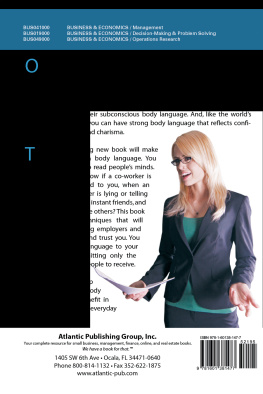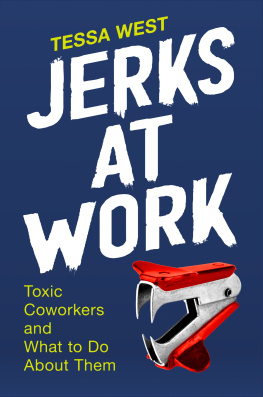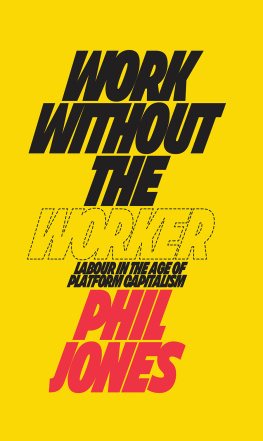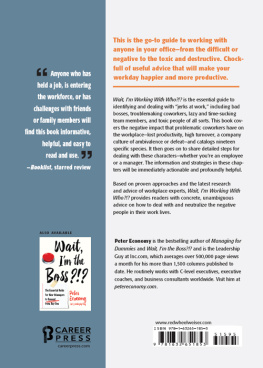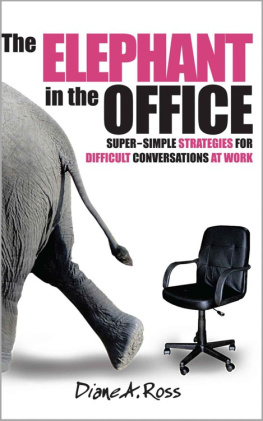Lynn Weiss PhD - A.D.D. on the Job: Making Your A.D.D. Work for You
Here you can read online Lynn Weiss PhD - A.D.D. on the Job: Making Your A.D.D. Work for You full text of the book (entire story) in english for free. Download pdf and epub, get meaning, cover and reviews about this ebook. year: 1996, publisher: Taylor Trade Publishing, genre: Home and family. Description of the work, (preface) as well as reviews are available. Best literature library LitArk.com created for fans of good reading and offers a wide selection of genres:
Romance novel
Science fiction
Adventure
Detective
Science
History
Home and family
Prose
Art
Politics
Computer
Non-fiction
Religion
Business
Children
Humor
Choose a favorite category and find really read worthwhile books. Enjoy immersion in the world of imagination, feel the emotions of the characters or learn something new for yourself, make an fascinating discovery.

- Book:A.D.D. on the Job: Making Your A.D.D. Work for You
- Author:
- Publisher:Taylor Trade Publishing
- Genre:
- Year:1996
- Rating:5 / 5
- Favourites:Add to favourites
- Your mark:
- 100
- 1
- 2
- 3
- 4
- 5
A.D.D. on the Job: Making Your A.D.D. Work for You: summary, description and annotation
We offer to read an annotation, description, summary or preface (depends on what the author of the book "A.D.D. on the Job: Making Your A.D.D. Work for You" wrote himself). If you haven't found the necessary information about the book — write in the comments, we will try to find it.
Here is practical, sensitive advice for the employee, boss, coworkers, and friends. A.D.D. on the Job suggests advantages that the A.D.D. worker possesses, how to find the right job, and how to keep it. Employers and coworkers will learn what to expect from a fellow worker with A.D.D. and the most effective ways to work with them.
A.D.D. on the Job: Making Your A.D.D. Work for You — read online for free the complete book (whole text) full work
Below is the text of the book, divided by pages. System saving the place of the last page read, allows you to conveniently read the book "A.D.D. on the Job: Making Your A.D.D. Work for You" online for free, without having to search again every time where you left off. Put a bookmark, and you can go to the page where you finished reading at any time.
Font size:
Interval:
Bookmark:
ADD on the Job
ALSO BY LYNN WEISS:
Attention Deficit Disorder in Adults
The Attention Deficit Disorder in Adults Workbook
Power Lines (coauthor)
the Job

Making Your ADD Work for You
Dr. Lynn Weiss

Copyright 1996 Lynn Weiss, Ph.D.
All rights reserved.
No part of this book may be reproduced in any form or by any meansincluding photocopying and electronic transmissionwithout written permission from the publisher.
Published by Taylor Trade Publishing
An Imprint of the Rowman & Littlefield Publishing Group
4501 Forbes Blvd., Suite 200
Lanham, Maryland 20706
Distributed by National Book Network
Library of Congress Cataloging-in-Publication Data
Weiss, Lynn.
ADD on the job : making your ADD work for you / Lynn Weiss.
p. cm.
Includes index.
ISBN 978-0-87833-917-4
1. Vocational guidance. 2. Attention-deficit disordered adultsEmployment. 3. Job stress. 4. Interpersonal communication. 5. Time management. 6. Career changes. I. Title.
HF5381.W4344 1996
650.1'087dc20
95-47458
CIP
Printed in the United States of America
Many people contributed to the completion of this book. Those with ADD who told their stories to me wanted them passed on to others. Their kindness and willingness to mentor others dealing with being ADD is heartfelt. Thanks for the caring.
Janis Dworkis, who helped me structure this book, deserves my greatest praise. As we learned to understand each others way of looking at the world and expressing ourselves, we learned more about ourselvesand I learned more about ADD than I knew before. Ive passed on what I learned to you in these pages.
Mary Kelly, my agent, per usual, held a belief in the importance of communicating about ADD. With her support and motivation, I tackled this project. With her unflagging encouragement, I continue to live my dreams. Thank you.
Many thanks also to Mary Schultz, the Comma Queen, who let me take over her dining room table as every word was read aloud and every phrase, sentence, and paragraph were checked.
My appreciation to Holly McGuire, my editor at Taylor, and Anita Edson, Taylors publicist, who, with all the other wonderful Taylor people, are responsible for getting this book in the hands of those who can use it.
And finally, thanks to everyone who supported and believed in this project. The teamwork paid off.
I am so glad I am ADD!
Are you surprised? You might be, if you have always associated ADD with problems, with limits, and with difficulties.
But thats not the way I look at it. The way I see it, I possess special skills and strengths because of ADD, and with those skills I have been able to experience life in Technicolor. Ive known diversity, drama, creativity, and sensitivityall as a result of my ADD. Ive had lots of experiences because of it, learned many lessons, and led a rich life.
Let me tell you a little bit about myself, so youll understand why I wrote this book and what I hope it will do for you.
My official diagnosis of ADDattention deficit disordercame only a few years ago. Looking back over my life and careers, I see that even before I knew I had ADD, I was making adjustments for it. For example, during most of the thirty years I spent as a psychotherapist, I used a rocking chair for my office chair. I rocked and rocked, moving constantly. Though I didnt realize it at the time, my hyperactivity was soothed by my rocking, while the people I counseled also felt soothed and nurtured.
In general, when I followed my heartwhether that was rocking in a chair or working with my handsI was happy being me.
Unfortunately, there were many times I did not take that path. Instead, I did what I thought was expected of me, which in most instances did not fit my ADD nature. I tried to learn things the way I was taught to learn them. I stayed in school. Although not performing up to the level of my intelligence, I managed to be successful. This meant that I struggled to follow a path that often ignored my creative way of thinking, learning, and doing things. The tangible result of my struggles was earning the academic degrees that allowed me to counsel people and gain the opportunity to have others listen to me. The emotional result was depression.
But I was aided along my path by a psychiatrist who told me in my twenties, Lynn, trust your feelings. You are sensitive, and they will guide you.
What he really did was give me permission to trust my feelings. I did, and that became the strongest tool of my life. When I follow my heart and trust my feelings, I experience success and happiness.
It all boils down to being who I am. And that approach goes for everyone. Be who you arehowever and whoever that is.
Over the years, I have learned both to listen within myself to understand my true feelings and to watch the external world outside of myself to understand what is expected of me. It then becomes my job and my responsibility to merge those two aspects of lifethe way I feel and what the world expects of mewithout losing any of myself in the process.
As a young adult I couldnt decide whether I wanted to be an artist or a psychotherapist. Finally one day while in New York City, sculpting a Madonna-like figure out of clay, the proverbial light bulb went off in my head, and the decision was made: I wanted to help people more than make things. In retrospect, I see I wanted to find answers for myself, of course, but I didnt need to know that then. What I did need to know was that I wanted people and our humanness to be the focus of my life.
Every choice I made to prepare myself to work as a psychotherapist was different from standard operating procedure, different from the way other people were doing things. For example, I didnt major in psychology or medicine because I wasnt able to read well enough or retain facts well enough to be successful in those areas. Instead, I sought a masters degree in anthropology with an emphasis on psychiatric anthropology. In the long run, anthropology and its main research technique of participant observation turned out to be the best teacher I could have found, the best teacher for me given the way my brain works (ADD) and what I wanted to achieve.
I was in graduate school in the 1960s, a time of great experimentation in many fields. In education many unusual programs existed. For example, the National Institute of Mental Health offered predoctoral anthropology students a clinical internship at the University of Washington Medical Schools Department of Psychiatry. The idea was to train anthropologists to do quality psychiatric field work in various cultures. The program was wonderful for me. I received excellent clinical training and, in fact, have used it ever since: doing clinical work from the broad perspective that anthropologys participant observation methods make possible.
Next I spent time in the community taking mental health care into homes, schools, and workplaces. With experience in hand, I then began a long career in counseling, bolstered by a Ph.D. in multidisciplinary studies with an emphasis in child development and affective education. What a wonderfully creative focus for someone who has ADD! During my years of counseling, I saw it all: the inside and outside of institutions, individuals and families, couples, children, adolescents and adults, businesses, agencies, and organizations. As I plied my trade, I kept observing, learning, trying new approaches, and noting the results.
Next pageFont size:
Interval:
Bookmark:
Similar books «A.D.D. on the Job: Making Your A.D.D. Work for You»
Look at similar books to A.D.D. on the Job: Making Your A.D.D. Work for You. We have selected literature similar in name and meaning in the hope of providing readers with more options to find new, interesting, not yet read works.
Discussion, reviews of the book A.D.D. on the Job: Making Your A.D.D. Work for You and just readers' own opinions. Leave your comments, write what you think about the work, its meaning or the main characters. Specify what exactly you liked and what you didn't like, and why you think so.

